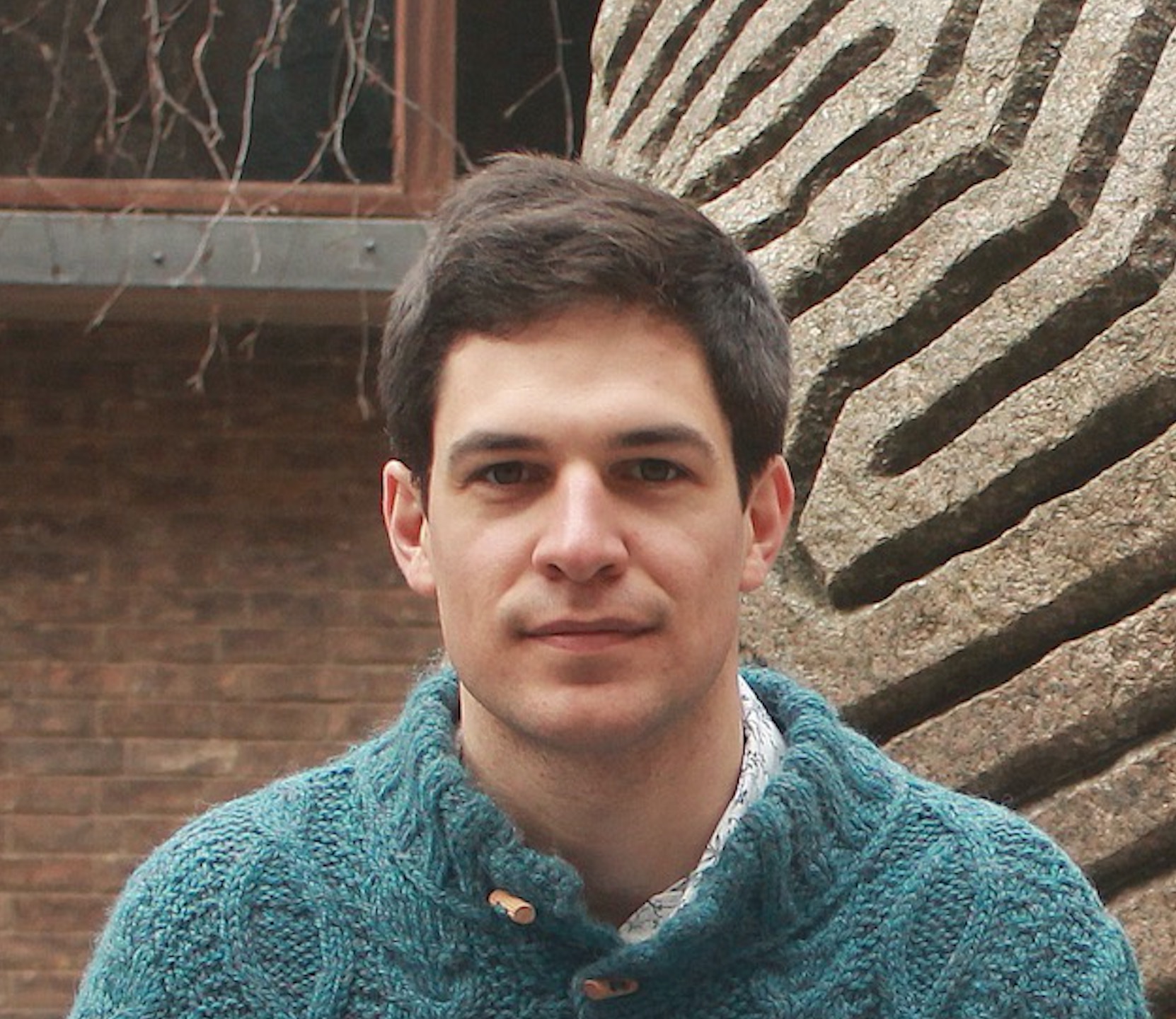
A new study led by Frantisek Vasa sheds light on the way the adolescent brain changes, putting teenagers at greater risk of mental ill health.
These results show us that active re-modelling of brain networks is ongoing during the teenage years and deeper understanding of brain development could lead to deeper understanding of the causes of mental illness in young people.
Professor Ed Bullmore
A new study published today and led by a Gates Cambridge Scholar highlights how new brain networks come ‘online’ during adolescence, allowing teenagers to develop more complex adult social skills, but putting them at increased risk of mental illness.
František Váša [2014] is lead author of the study which is published in the Proceedings of the National Academy of Sciences (PNAS).
He is now advising fellow Gates Cambridge Scholar Lena Dorfschmidt [2018] who is building on his work.
Adolescence is a time of major change in life, with increasing social and cognitive skills and independence, but also increased risk of mental illness. While it is clear that these changes in the mind must reflect developmental changes in the brain, it has been unclear how exactly the function of the human brain matures as people grow up from children to young adults.
The new study, supported by the Wellcome Trust, helps us understand more clearly the development of the adolescent brain.
Changes in the adolescent brain
František and colleagues collected functional magnetic resonance imaging (fMRI) data on brain activity from 298 healthy young people, aged 14-25 years, each scanned at least twice on two occasions about 18 months apart. In each scanning session, the participants lay quietly in the scanner so that the researchers could analyse the pattern of connections between different brain regions while the brain was in a resting state.
The team discovered that the functional connectivity of the human brain – in other words, how different regions of the brain ‘talk’ to each other – changes in two main ways during adolescence. The brain regions that are important for vision, movement and other basic faculties were strongly connected at the age of 14 and became even more strongly connected by the age of 25. This was called a “conservative” pattern of change.
However, the brain regions that are important for more advanced social skills, such as being able to imagine how someone else is thinking or feeling (so-called theory of mind), showed a very different pattern of change. These regions were often weakly connected to the rest of the brain and only became more strongly connected during the course of adolescence. This was called a “disruptive” pattern of change.
By comparing the fMRI results to other data on the brain, the researchers found that the network of regions that showed the disruptive pattern of change during adolescence had high levels of metabolic activity typically associated with active re-modelling of connections between nerve cells.
František, who completed his PhD in Psychiatry at the University of Cambridge, says: “From the results of these brain scans, it appears that the acquisition of new, more adult skills during adolescence depends on the active, disruptive formation of new connections between brain regions, bringing new brain networks ‘on-line’ for the first time to deliver advanced social and other skills as people grow older.”
Professor Ed Bullmore, the senior author of the paper and head of the Department of Psychiatry in Cambridge, says: “We know that depression, anxiety and other mental health disorders often occur for the first time in adolescence – but we don't know why. These results show us that active re-modelling of brain networks is ongoing during the teenage years and deeper understanding of brain development could lead to deeper understanding of the causes of mental illness in young people.”
Taking the research forward
Lena Dorfschmidt has been building on this work. She is in the second year of her PhD in Psychiatry and her research focuses on how cortical development in adolescents relates to psychiatric disorders. She is also interested in how cortex development affects males and females differently, with females being twice as likely to develop depression in adolescence.
"To answer these questions František's work is very useful. I am building on his methodology for looking at general adolescent brain development and looking into how it affects psychiatric disorders," says Lena.
She adds that František believes strongly in collaboration and sharing information which led to him sharing his code with Lena.
Although František, who is now based at King's College, London, is no longer working directly on the project himself, he is now advising Lena. The two email regularly and talk about the project on Skype and in person. "It is really special being supervised by a Gates Cambridge Scholar," says Lena. "František cares deeply about the project and it is exciting for him that the work he began is continuing."
*Picture credit: By SCA Svenska Cellulosa Aktiebolaget – Flickr: Teens sharing a song, CC BY 2.0, https://commons.wikimedia.org/w/index.php?curid=15743144

Frantisek Vasa
- Alumni
- Czech Republic
- 2014 PhD Psychiatry
- Churchill College
I was born in Prague and grew up in Geneva. Following a BSc in Mathematical Physics at the University of Edinburgh, I undertook an MSc in Biomedical Engineering at Imperial College London. During my MSc project, I became fascinated by the connectome – a holistic description of brain connectivity, which can be studied using complex network theory. Subsequently, I obtained a research assistant position at the University Hospital of Lausanne in Switzerland to study connectome alterations in psychiatric disease. Although most psychiatric disorders emerge in adolescence, our limited understanding of brain development during this period hinders our ability to identify maturational aberrations. This has motivated my desire to undertake a PhD in Psychiatry at the University of Cambridge, to study development of the connectome in adolescence using complex network theory.

Lena Dorfschmidt
- Alumni
- Germany
- 2018 PhD Psychiatry
- Darwin College
During my undergraduate studies in Cognitive Science at Osnabrück University in Germany I became interested in machine learning and graph theory. I joined professor Henrik Walter’s lab at Charité University in Berlin, Germany, and worked with Dr. Jonathan Clayden at the Developmental Imaging and Biophysics Unit at University College London, UK. I am fascinated by a graph-theoretical approach to the study of whole-brain network organization in health and disease. Psychiatric illnesses, like mood disorders, often impede with our ability to lead independent and self-determined lives. With my research, I aim to contribute to a better understanding of such illnesses in order to develop biomarkers that allow for the effective detection, prediction and discrimination of mood disorders. At Cambridge I will be doing a PhD in Psychiatry, studying trajectories of brain network development, adolescent depressive symptoms and mood disorder. I will combine multimodal MRI metrics of network organization with machine learning tools to identify network phenotypes that are most predictive of subclinical depressive symptoms and depressive disorder.
Previous Education
University of Osnabruck












